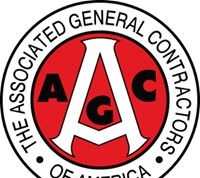STUDY: “LIKE-KIND” EXCHANGES VITAL TO HEALTH OF COMMERCIAL REAL ESTATE AND THE U.S. ECONOMY
WASHINGTON, D.C. – August 7, 2015 – (RealEstateRama) — The Building Owners and Managers Association (BOMA) International, with support from its Industry Defense Fund and in collaboration with 15 other real estate associations, has released a groundbreaking study on the economic effects of repealing Section 1031 of the United States tax code, also known as “like-kind” exchanges. The study, written by Professors David C. Ling and Milena Petrova, finds that a repeal of the provision would damage the long- and short-term economic health of both the commercial real estate industry and the U.S. economy in general.
1031 or like-kind exchanges allow for the seller of an investment property to defer capital gains on the sale of that property if they purchase another investment property of similar kind of same or greater value within a short amount of time, effectively exchanging the property for a like-kind and maintaining the money in an investment. The capital gains tax ultimately is paid when the final property is sold and the investment is cashed out.
The first-of-its-kind study, titled “The Economic Impact of Repealing or Limiting Section 1031 Like-Kind Exchanges in Real Estate,” finds that, on average, taxpayers using a like-kind exchange acquire a new, replacement property that is $305,000 to $422,000 more valuable. Properties that are replaced without using a 1031 exchange usually are less expensive or of equal value. Also, running contrary to the notion that 1031 exchanges are a tax avoidance strategy, in 34 percent of exchanges, some federal tax is paid. More importantly, over the long run, like-kind exchanges boost tax revenue because of the higher liability that comes about from acquiring and disposing of a higher cost asset.
Other significant findings detailed in the study include:
- Repealing like-kind exchanges would raise the effective tax rate on the taxpayer’s investment (including rental income and gain, assuming a nine-year holding period) from 23 percent to 30 percent for a typical property owner who is deferring their gain on a commercial property.
- Repealing like-kind exchanges would mean that rents would need to increase from eight to 13 percent before new construction would be economically viable. These higher rents would reduce the affordability of commercial space for both large and small tenants. The price declines and rent effects of eliminating real estate like-kind exchanges would be more pronounced in high-tax states.
- Repealing like-kind exchanges would slow real estate transaction activity. The study illustrated how properties acquired and sold between 1997 and 2014 using like-kind exchanges had significantly shorter holding periods.
“As illustrated by this important study, if 1031 exchanges were to be repealed, commercial real estate transaction activity would decrease dramatically, among other unintended harmful consequences for our industry,” commented BOMA International Chair Kent C. Gibson, BOMA Fellow, president of Capstone Property Management, L.C. “As Congress continues to weigh options for tax reform, BOMA International will continue to work with our coalition partners to educate lawmakers on the fact that like-kind exchanges help grow our economy, as commercial real estate is a significant driver of the country’s economic engine.”
Find the study in its entirety on the BOMA International website. A one-page fact sheet also is available.
***
About BOMA International
The Building Owners and Managers Association (BOMA) International is a federation of 91 BOMA U.S. associations and 17 international affiliates. Founded in 1907, BOMA represents the owners and managers of all commercial property types including 10.4 billion square feet of U.S. office space that supports 1.8 million jobs and contributes $227.6 billion to the U.S. GDP. Its mission is to advance a vibrant commercial real estate industry through advocacy, influence and knowledge. Learn more at www.boma.org?.
Contact
Jessica Bates
Manager of Communications & Marketing
BOMA International
(202) 326-6348
">?













